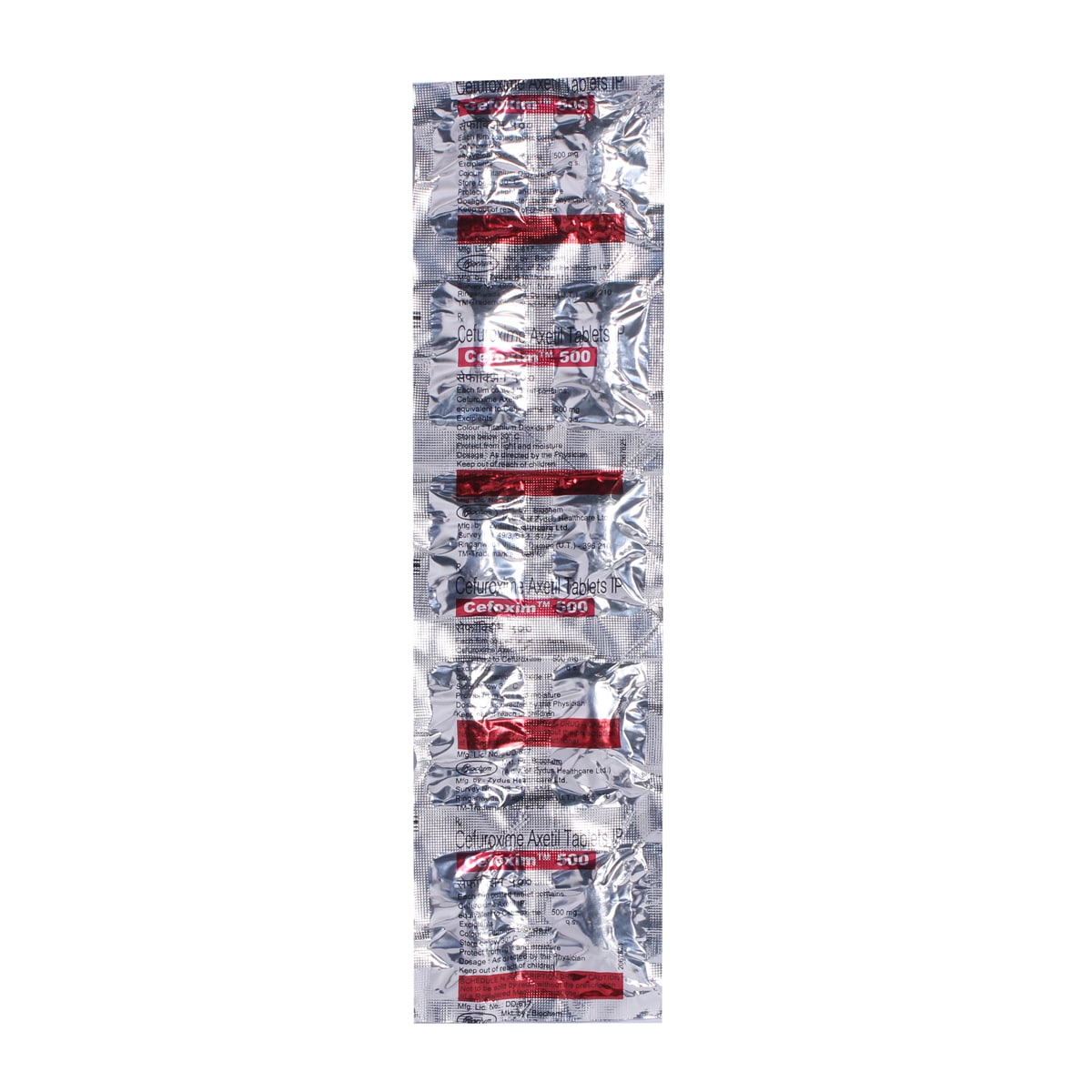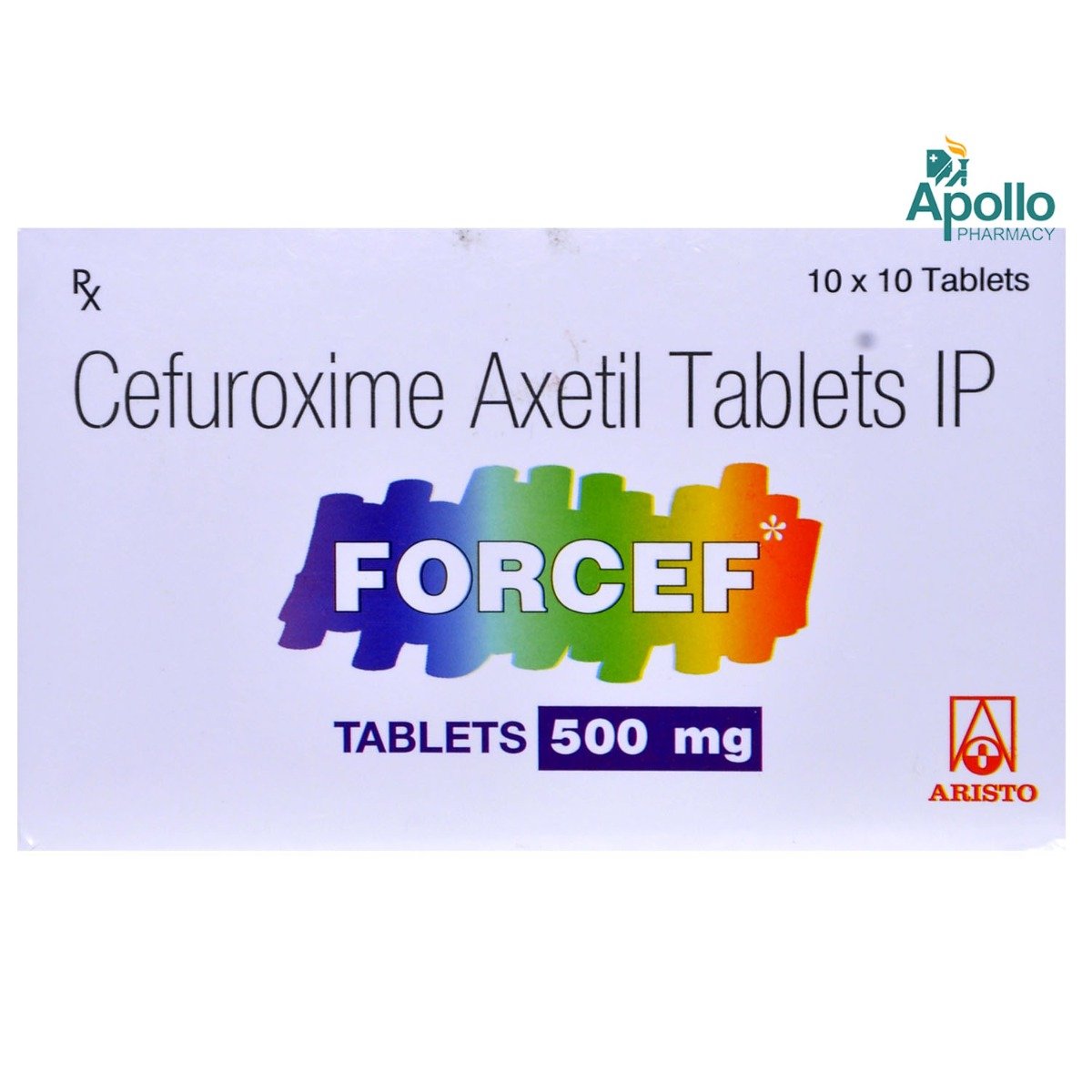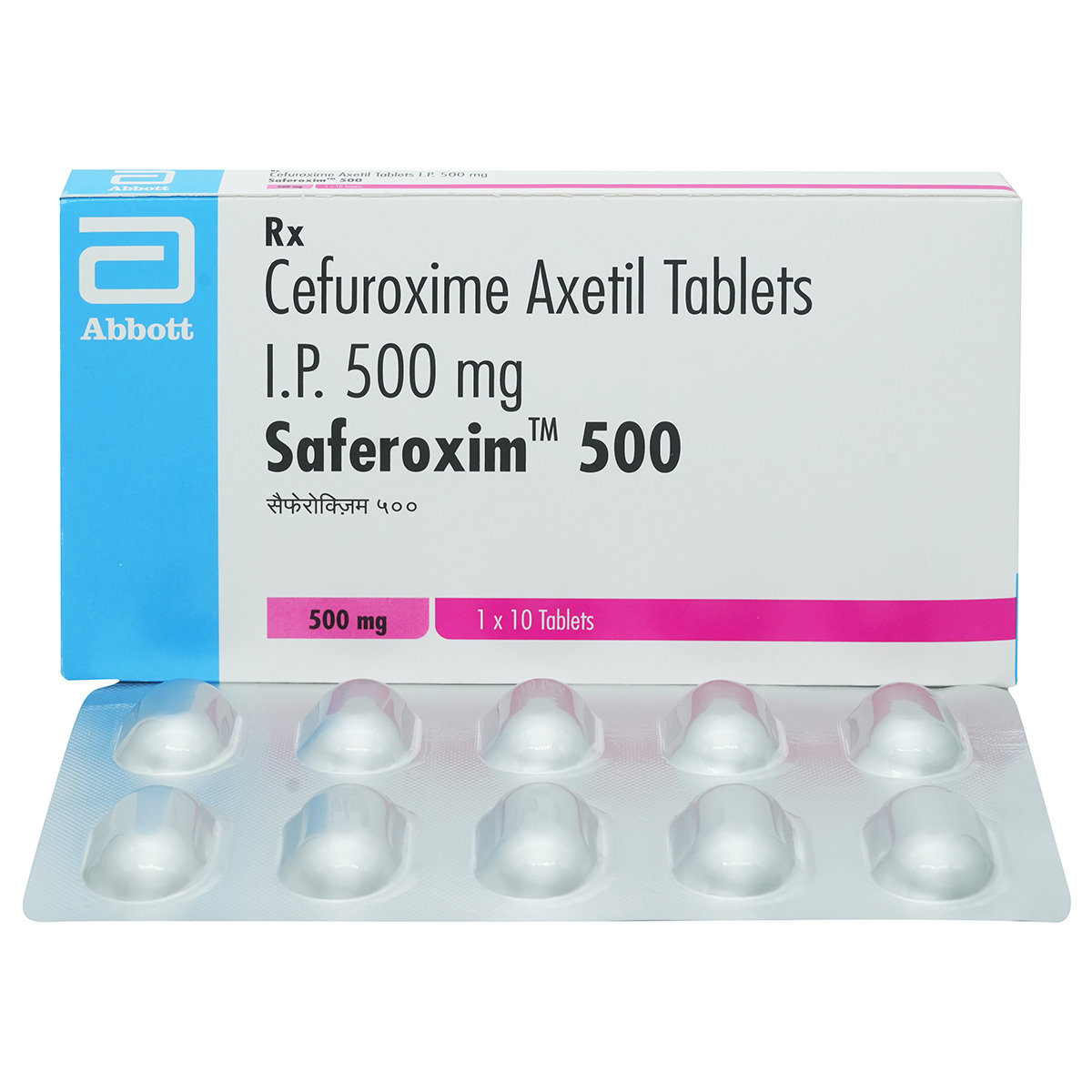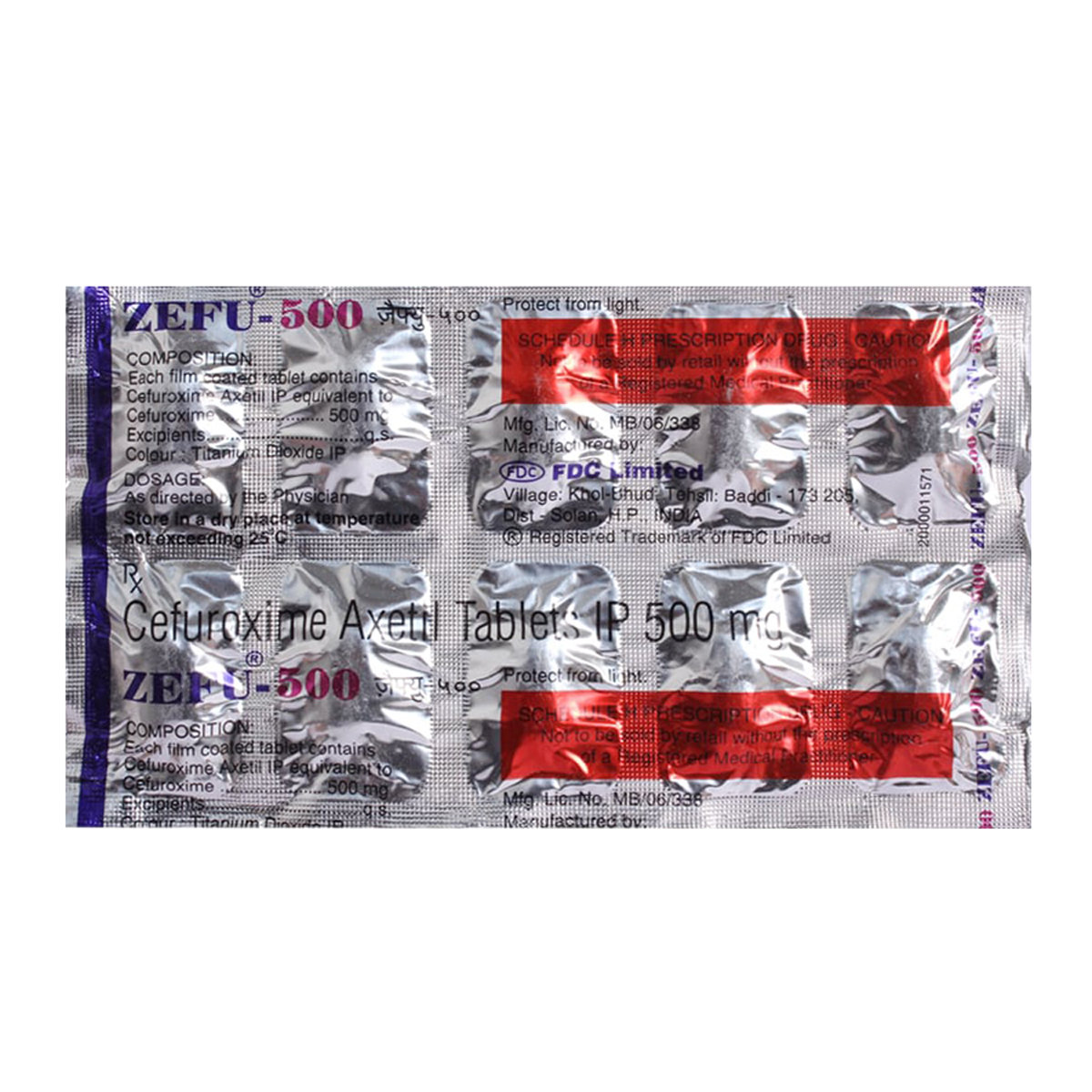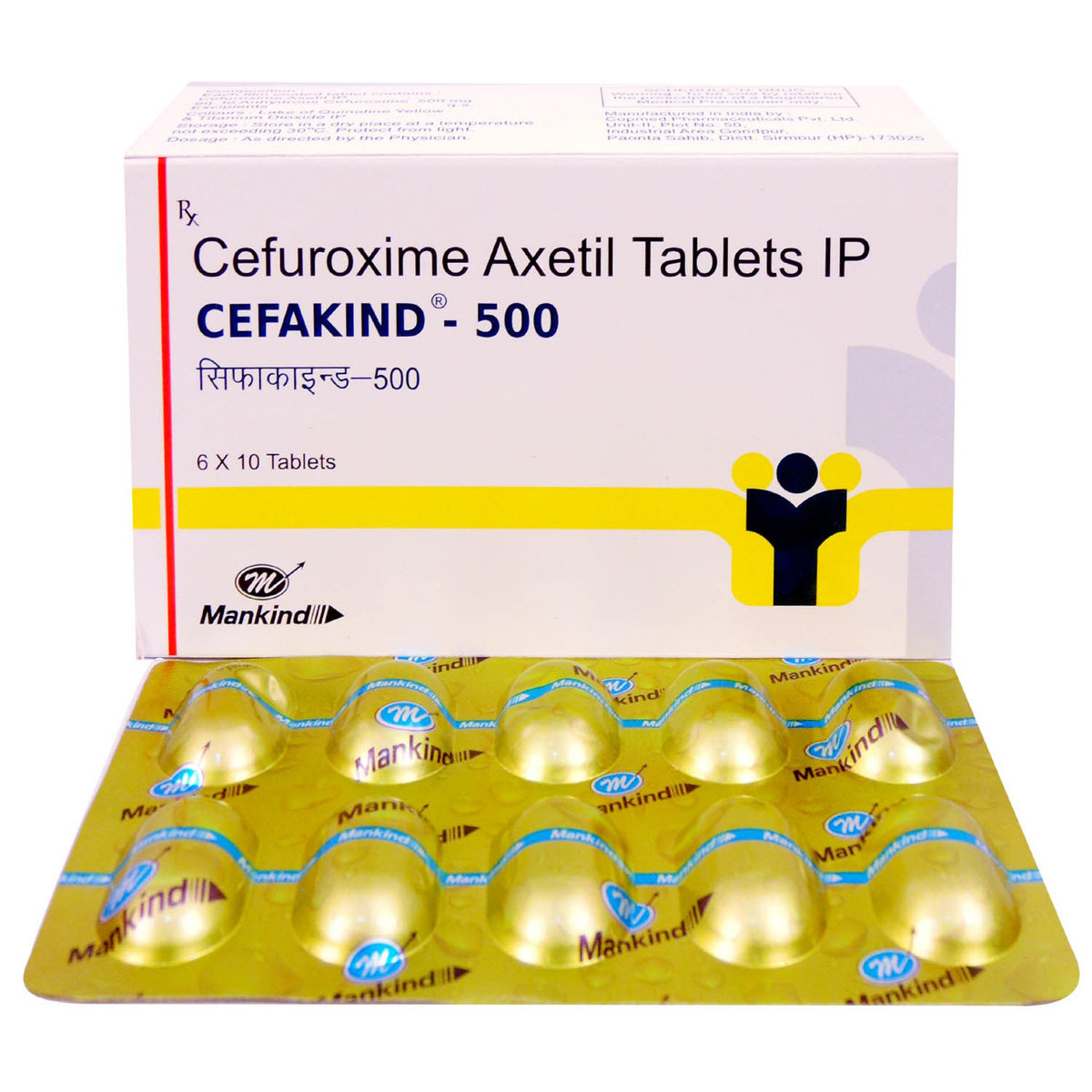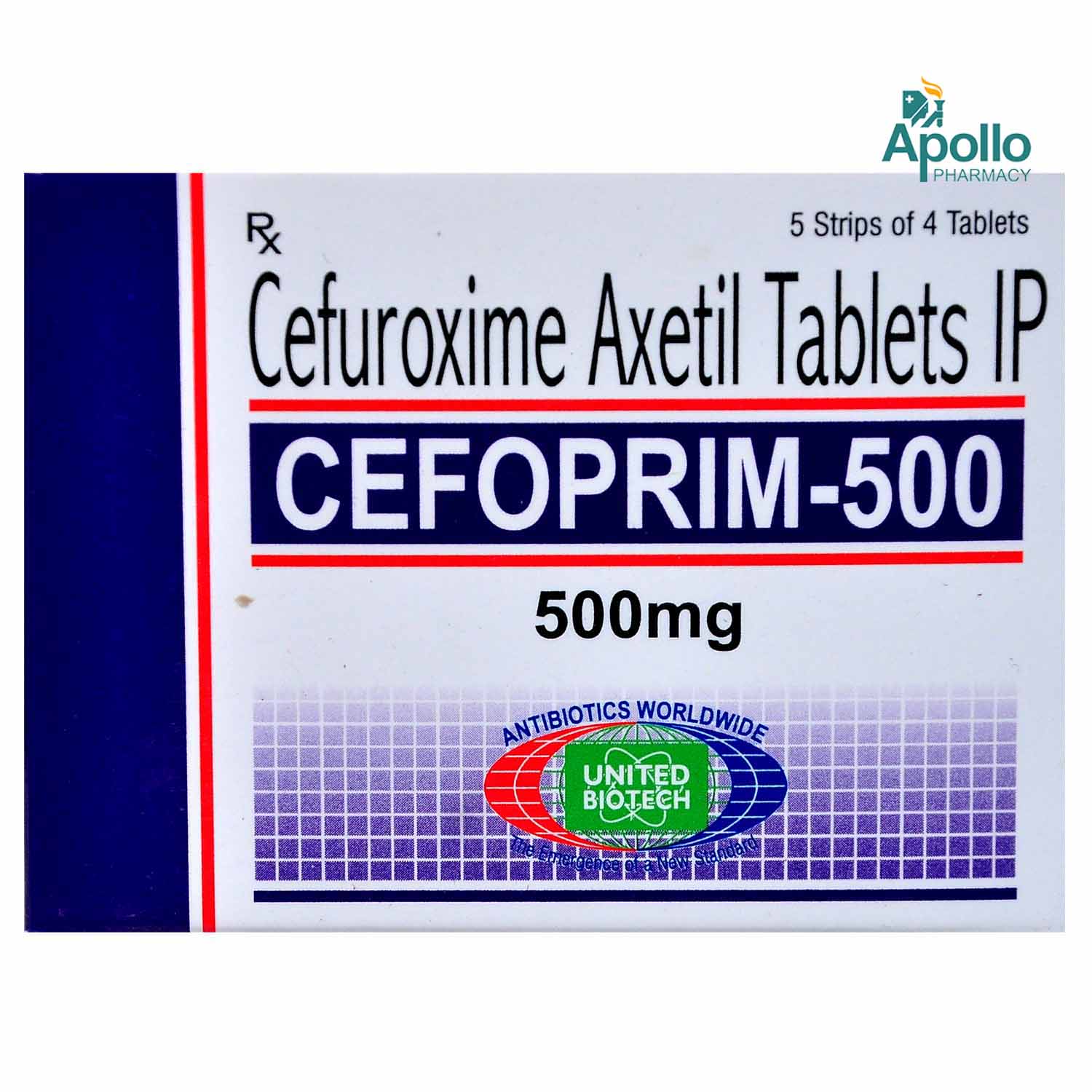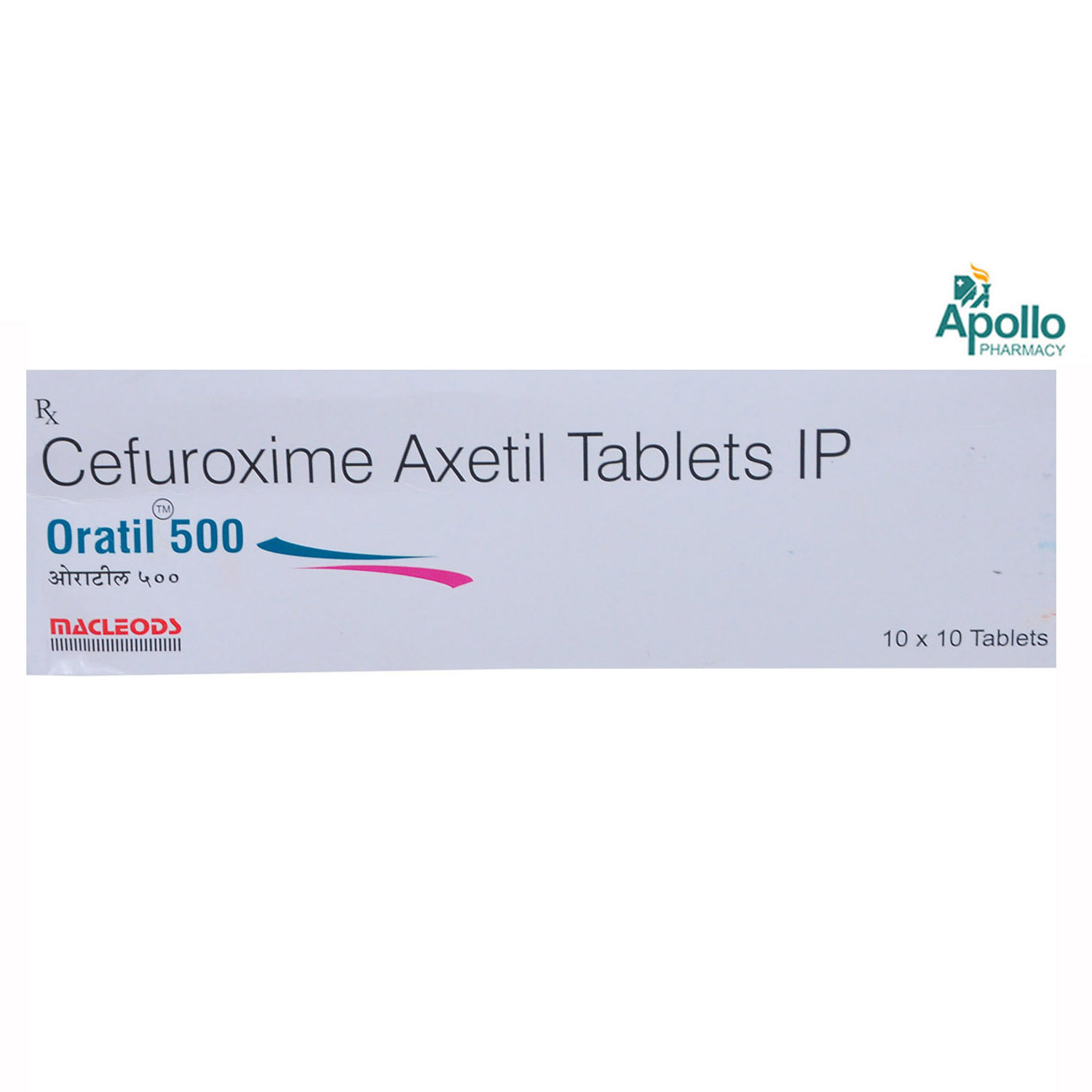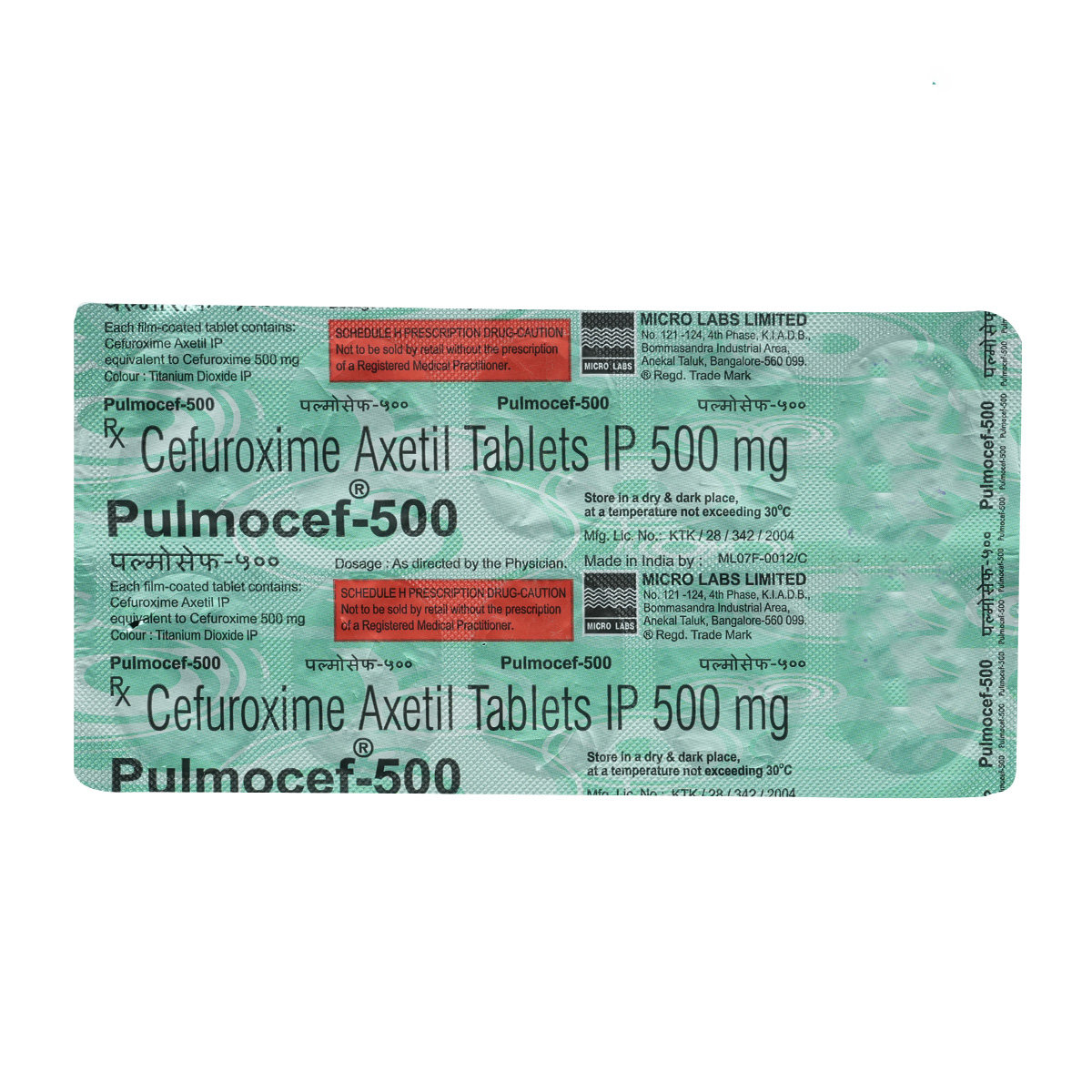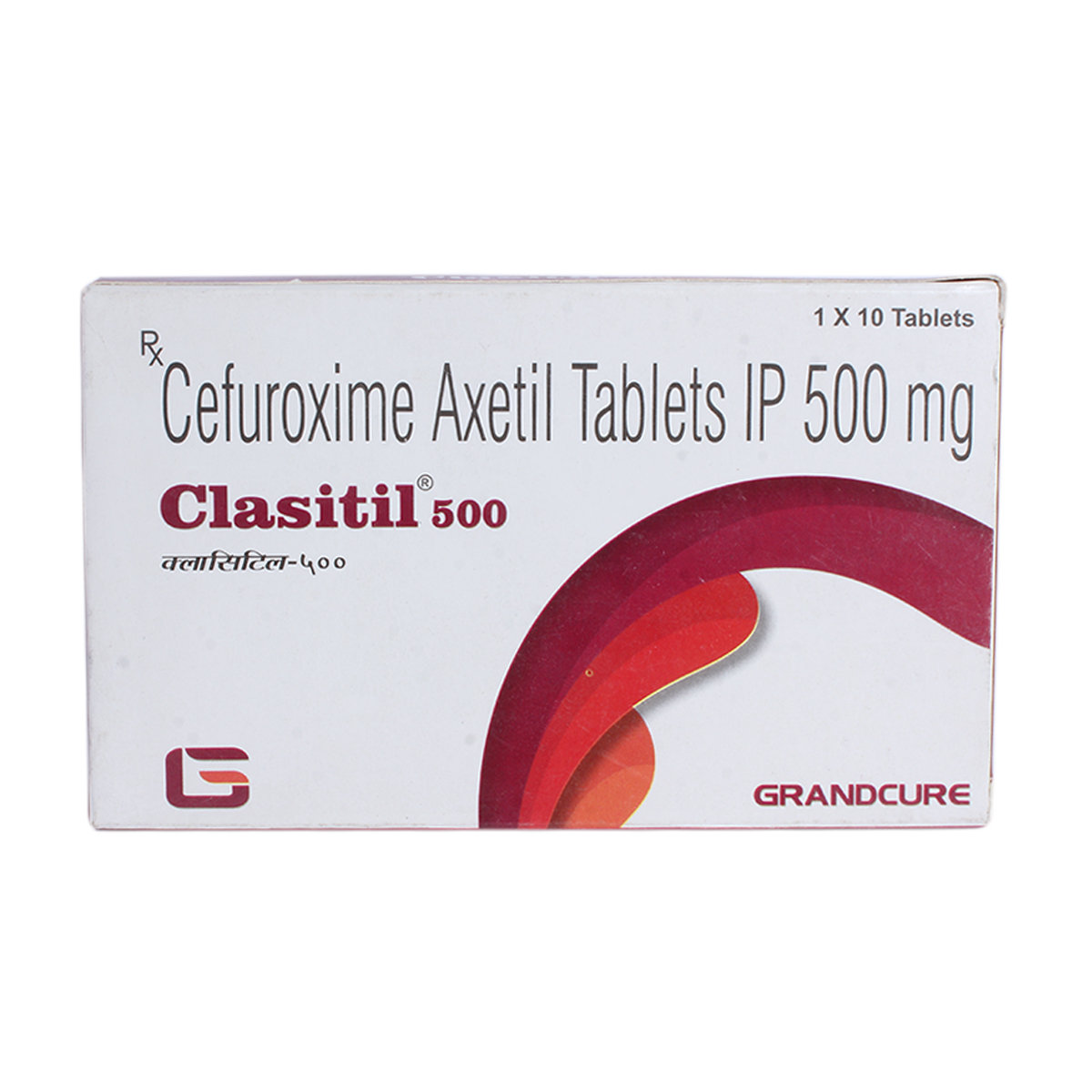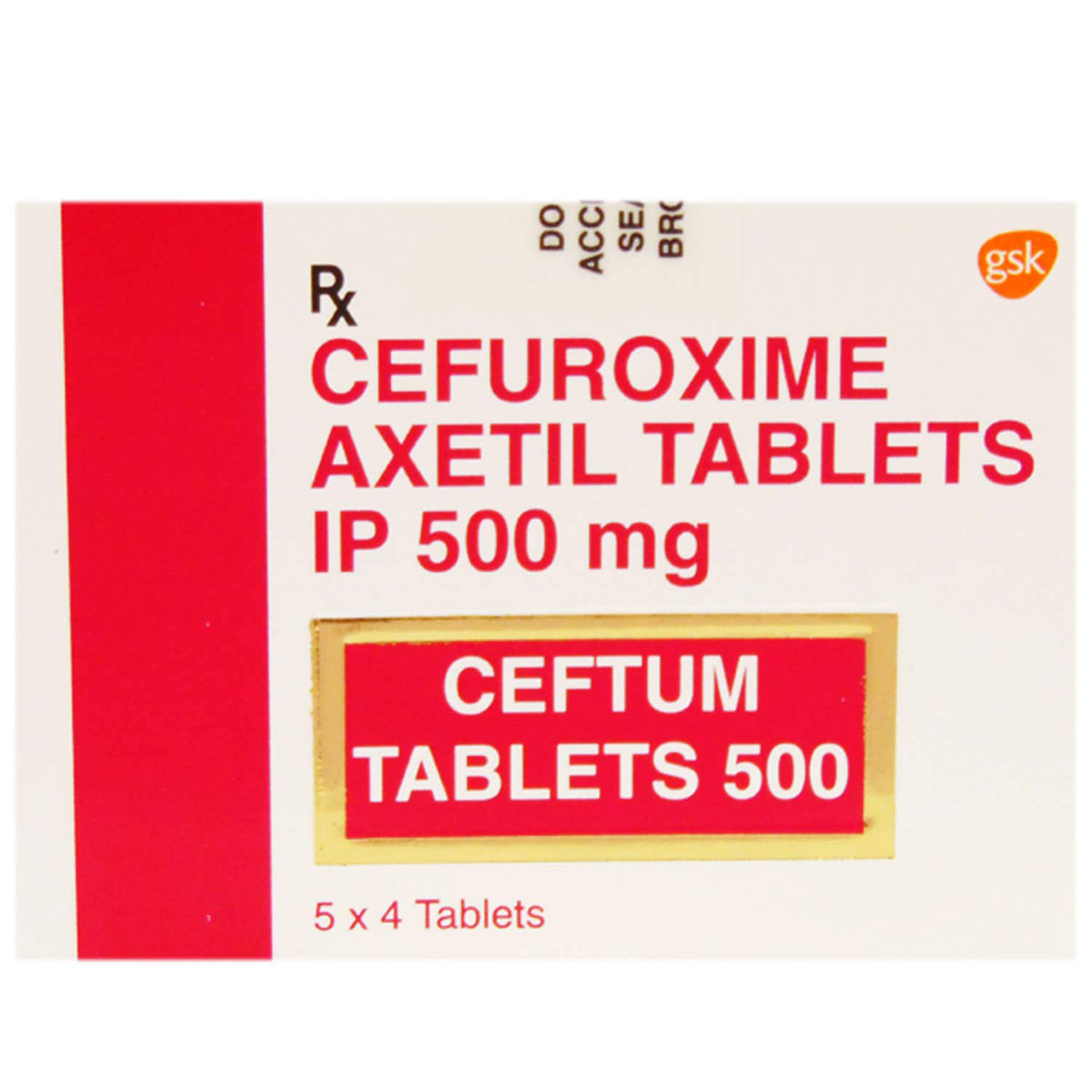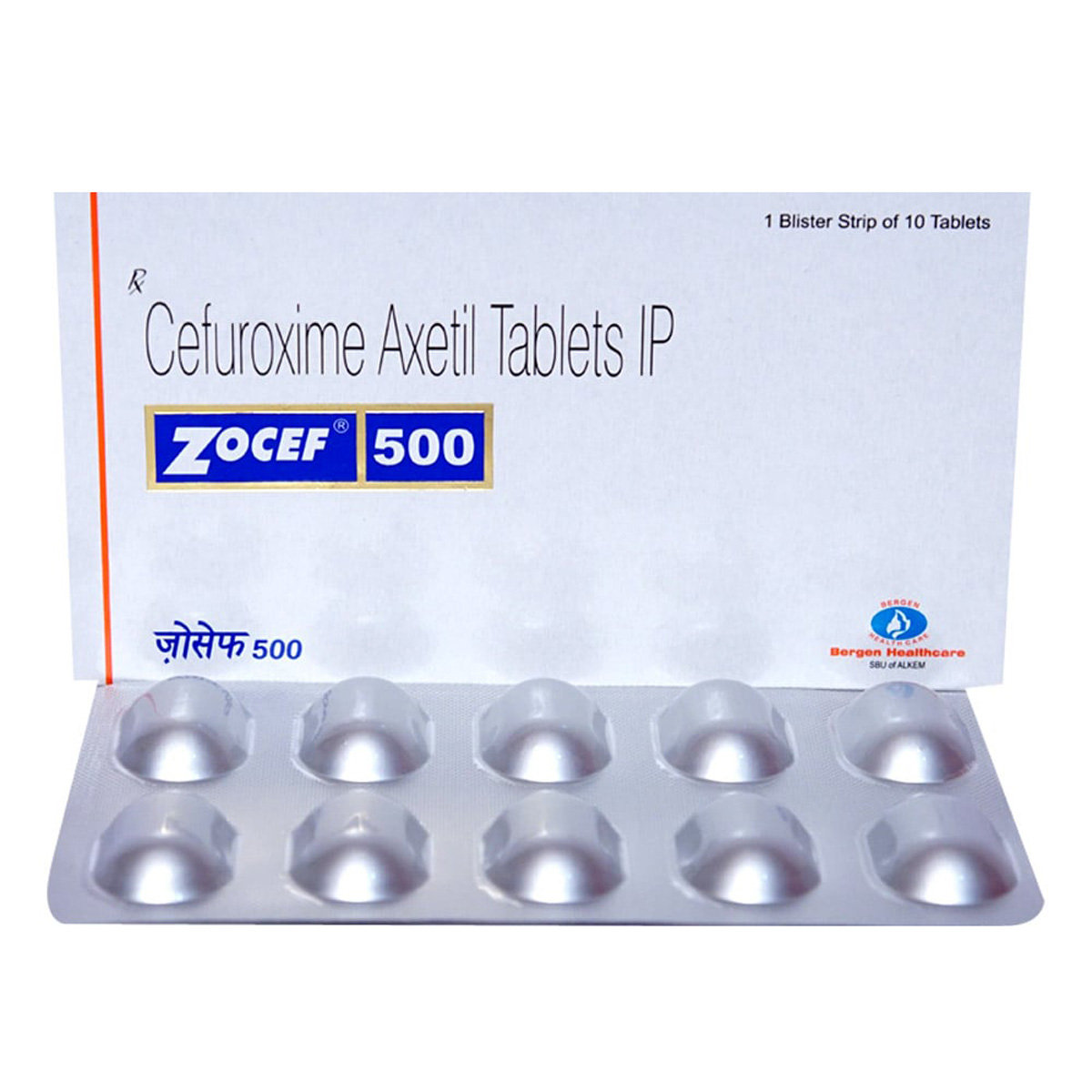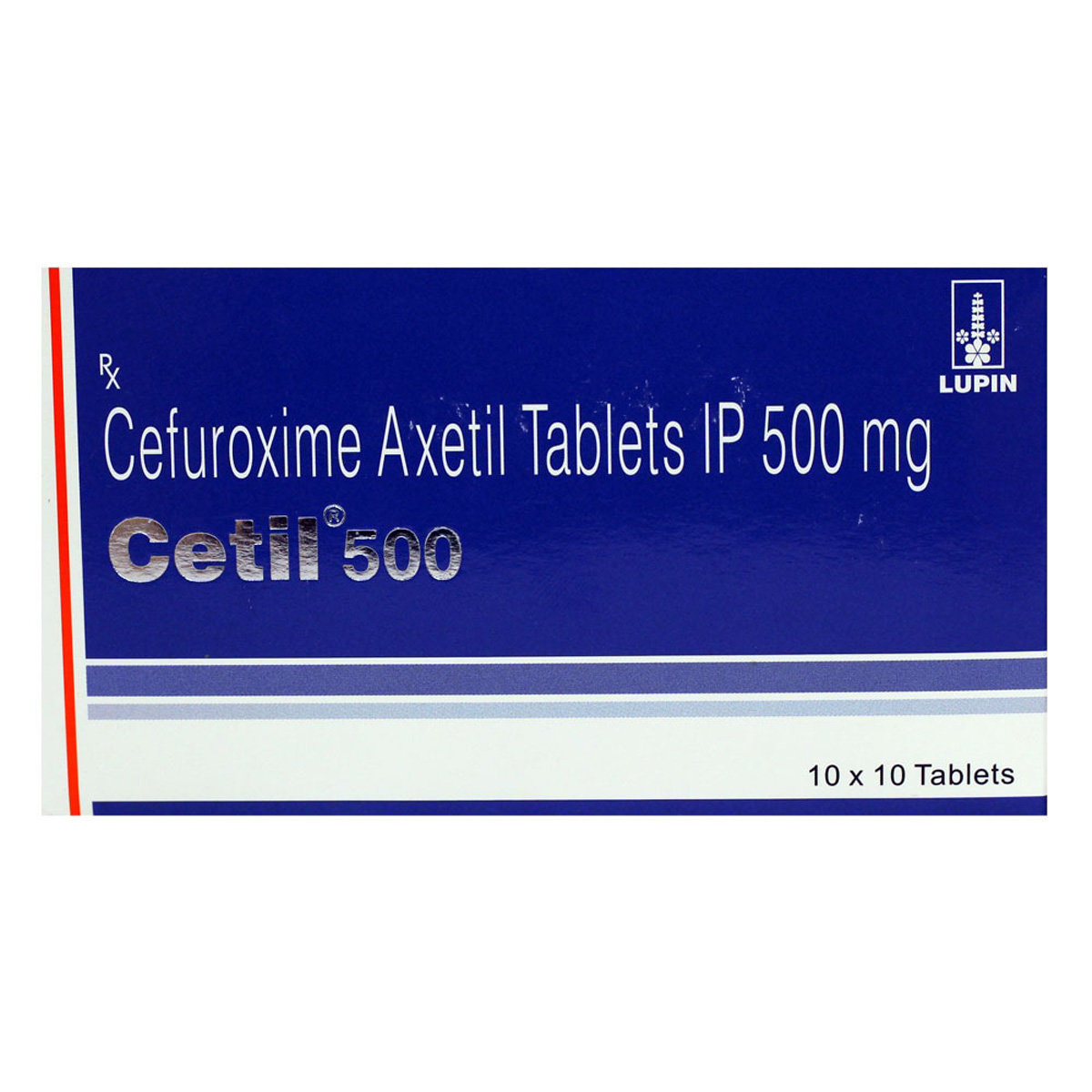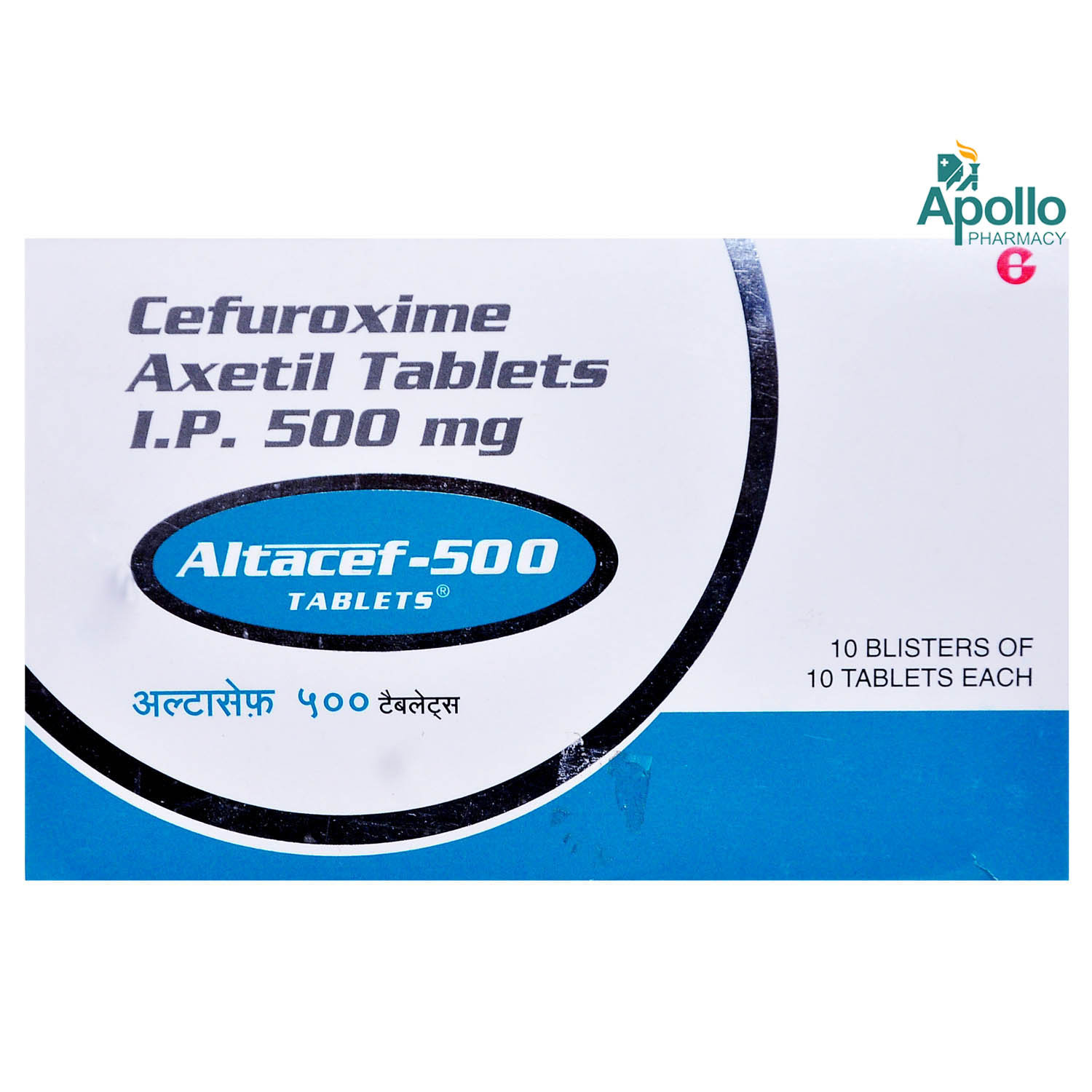- Home
- Bigcef 500 mg Tablet
Bigcef 500 mg Tablet Substitute
Bigcef 500 mg Tablet Substitute
Medicine Composition:
CEFUROXIME-500MGAll Substitutes & Brand Comparisons
RX
Cefoxim-500 Tablet 10's
Biochem Pharmaceutical Industries Ltd
₹324
(₹29.16 per unit)
19% CHEAPERRX
Forcef 500 mg Tablet 10's
Aristo Pharmaceuticals Pvt Ltd
₹365.5
(₹32.9 per unit)
9% CHEAPER- Apollo-Trusted
RX
Saferoxim 500 Tablet 10's
Abbott India Ltd
₹499.5
(₹34.47 per unit)
4% CHEAPER RX
Zefu-500 Tablet 10's
FDC Ltd
₹411.5
(₹37.04 per unit)
2% COSTLIERRX
Cefakind-500 Tablet 10's
Mankind Pharma Pvt Ltd
₹459.5
(₹41.36 per unit)
14% COSTLIER- Apollo-Trusted
RX
Cefoprim 500 Tablet 4's
United Biotech Pvt Ltd
₹219
(₹43.8 per unit)
20% COSTLIER RX
Oratil 500 Tablet 10's
Macleods Pharmaceuticals Ltd
₹507.5
(₹45.68 per unit)
25% COSTLIERRX
Pulmocef 500 Tablet 10's
Micro Labs Ltd
₹511.5
(₹46.04 per unit)
26% COSTLIERRX
Clasitil 500 Tablet 10's
Grandcure Healthcare Pvt Ltd
₹534
(₹48.06 per unit)
32% COSTLIERRX
Ceftum 500 Tablet 4's
GlaxoSmithKline Pharmaceuticals Ltd
₹216
(₹48.6 per unit)
33% COSTLIERRX
Ceroxim 500 mg Tablet 10's
Sun Pharmaceutical Industries Ltd
₹540
(₹48.61 per unit)
34% COSTLIERRX
Zocef 500 Tablet 10's
Alkem Laboratories Ltd
₹549
(₹49.41 per unit)
36% COSTLIERRX
Cetil 500 Tablet 10's
Lupin Ltd
₹549
(₹49.41 per unit)
36% COSTLIERRX
Altacef-500 Tablet 10's
Glenmark Pharmaceuticals Ltd
₹549
(₹49.41 per unit)
36% COSTLIERRX
RSCEFUR 500MG TABLET 10'S
Sunrise Cottage Industries
₹665
(₹59.86 per unit)
65% COSTLIER

When Should You Consider Switching from Bigcef 500 mg Tablet ?
Patients may explore substitutes in the following scenarios:
- High monthly cost of Bigcef 500 mg Tablet
- Non-availability in local pharmacies
- Generic recommendation by a doctor
- Side effects or better tolerability with alternatives
What to Know Before Switching
Before you switch from Bigcef 500 mg Tablet to another medicine, here are some important points to keep in mind:
Same salt, different brands:
Most substitutes contain the same active ingredient - CEFUROXIME-500MG, but the fillers, coating, or manufacturing quality may vary slightly.
Consult your doctor first:
Even if the salt is the same, your doctor can confirm if the substitute is right for your condition, dosage, and health history.
Watch out for allergies or reactions:
Some people may react differently to certain brands due to inactive ingredients. If you notice any side effects, inform your doctor immediately.
Price ≠ effectiveness:
A lower-priced substitute doesn't mean it's less effective. Many generic medicines work just as well as branded ones.
Check the dosage form and strength:
Always match the substitute’s strength (e.g., 5mg, 10mg) and form (tablet, capsule, syrup) with what your doctor prescribed.
Uses
Bigcef 500 mg Tablet is used in the treatment of Bacterial infections. The detailed uses of Bigcef 500 mg Tablet are as follows:
- Bacterial Infections: Bigcef 500 mg Tablet is commonly used to treat various bacterial infections, including respiratory tract infections, urinary tract infections, ear Infections, and skin infections.
- Treatment of Bronchitis: Bigcef 500 mg Tablet can help treat bronchitis, an infection of the airway tubes leading to the lungs, by targeting the underlying bacterial cause.
- Treatment of Gonorrhea: Bigcef 500 mg Tablet treats gonorrhea, eliminating the bacteria and alleviating symptoms.
- Treatment of Lyme Disease: Bigcef 500 mg Tablet can be used to treat Lyme disease, a bacterial infection caused by tick bites, helping to eliminate the bacteria and manage symptoms.
- Treatment of Throat or Tonsil Infections: Bigcef 500 mg Tablet can be used to treat bacterial infections of the throat or tonsils, helping to relieve symptoms.
- Treatment of Sinusitis: Bigcef 500 mg Tablet can effectively treat sinus infections caused by susceptible bacteria, alleviating symptoms like nasal congestion and facial pain.
- Pneumonia Treatment: Bigcef 500 mg Tablet is sometimes prescribed to treat pneumonia, especially community-acquired infections, helping patients recover faster.
Medicinal Benefits
- Bigcef 500 mg Tablet is a broad-spectrum antibiotic used to treat a wide variety of bacterial infections caused by both gram-positive and gram-negative bacteria.
- It is highly effective in the treatment of respiratory tract infections, ear infections, skin and soft tissue infections, genitourinary tract infections, and bone infections.
- In addition to treating active infections, Bigcef 500 mg Tablet is also prescribed to prevent the spread of infections following a surgical procedure.
- It is also used in the early treatment of Lyme disease, caused by the bacterium Borrelia burgdorferi, in adults and children over 12 years of age.
- Bigcef 500 mg Tablet demonstrates strong antibacterial activity against a range of bacteria, including Staphylococcus aureus, Streptococcus pneumoniae, Streptococcus pyogenes, Haemophilus influenzae, Haemophilus parainfluenzae, Klebsiella pneumoniae, Moraxella catarrhalis, and Neisseria gonorrhoeae.
FAQs
The substitutes of Bigcef 500 mg Tablet contain the same active salt(s) - CEFUROXIME-500MG. However, they may differ in price, manufacturing quality, and inactive ingredients. Speak to your doctor to find a suitable option.
Switching to a generic substitute medicine in the place of Bigcef 500 mg Tablet is often possible if it has the same salt, strength, and dosage form. But always check with your doctor before making any changes to your medication.
Generics versions of Bigcef 500 mg Tablet are typically more affordable because they don’t include the original brand's research, development, and marketing costs. They contain the same active ingredient and are approved for safety and effectiveness.
Most people don’t notice any difference. However, some may react to different fillers or coatings. If you notice any unusual symptoms after switching, consult your doctor.
Make sure the new medicine has the same active salt, strength, dosage form. Always confirm the change with your doctor or pharmacist.
Substitutes of Bigcef 500 mg Tablet meet the same safety and efficacy standards as Bigcef 500 mg Tablet , but small differences in absorption or formulation can exist. A doctor can help you choose the right one for your needs.
Yes. Substitutes of Bigcef 500 mg Tablet may vary in color, size, or shape due to differences in manufacturing and branding, but this does not affect how they work.
Yes, it’s generally safe to switch between multiple substitutes of Bigcef 500 mg Tablet if they have the same salt and strength. However, always inform your doctor so they can monitor how your body responds.
Yes, many people safely use substitutes of Bigcef 500 mg Tablet for long-term treatment. Just ensure it’s done under medical supervision.
If your symptoms stay under control or lab results remain stable, the substitute for Bigcef 500 mg Tablet is likely working well. Regular follow-ups with your doctor are important.
Absolutely. Even with the same salt, small differences can affect how your body responds when switching from Bigcef 500 mg Tablet to its substitute. Always consult your doctor before switching.
Bigcef 500 mg Tablet is used to treat a wide range of bacterial infections. It helps in the treatment of urinary tract infections (UTI), mild to moderate lower respiratory tract infections (bronchitis), severe lower respiratory tract infections (pneumonia), pyelonephritis (kidney inflammation due to the bacterial infection), uncomplicated gonorrhoea (sexually transmitted infection), and Lyme disease (caused due to biting of infected black-legged tick insect).
Bigcef 500 mg Tablet is a broad-spectrum antibiotic that kills a wide range of bacteria (bactericidal). It kills the bacterial cell by binding to the outer layer of the bacteria and blocking the activity of the enzyme that makes peptidoglycan (a vital component of the bacterial cell wall). As a result, the bacterial cell cannot grow and multiply and finally gets killed.
No, it is a prescribed drug, given by a physician for preventing specific medical conditions. Taking it on your own can cause unwanted side effects.
You should avoid taking Bigcef 500 mg Tablet with oral birth control pills, medicines that reduce gastric acidity (like antacids, omeprazole), immunosuppressing drugs (mycophenolate or mycophenolic), medicines used for reducing uric acid (probenecid), and some urinary glucose tests. Besides this, it also interacts with typhoid and BCG vaccines.
Depending upon the severity of your medical condition, your doctor may prescribe it to you daily for a specific duration. The usual dose of Bigcef 500 mg Tablet is 5-10 days, but depending on your current infection state, your doctor may extend your dose intake for more days.
Try to stay well hydrated by drinking at least six glasses of water or other fluids per day. Keep your underwear clean and try to use cotton underwear to avoid the spread of infection. Always keep your bladder empty as much as possible by peeing regularly. Your doctor may prescribe cranberry juice with antibiotics to treat a urinary tract infection.
After taking an antibiotic, you may need to wait for up to three hours before eating or drinking any dairy products, including milk, butter, yoghurt, and cheese. Grapefruit juice and dietary supplements containing minerals like calcium may also work to dampen the effect of antibiotics.
If you have taken an accidental overdose of Bigcef 500 mg Tablet , you may have diarrhoea, nausea or vomiting. In rare cases, it can also cause convulsions or seizures (fits). Try to reach out to the doctor in this case.
No. Bigcef 500 mg Tablet treats only bacterial infection. Cough, flu or cold are usually caused by viruses. So, you should consult a doctor for these conditions.
Yes. Bigcef 500 mg Tablet may interact with birth control pills and lower their efficiency. So, you should tell your doctor if you are using any birth control pills.
No. You should complete the full course of Bigcef 500 mg Tablet as your doctor prescribes. You must take Bigcef 500 mg Tablet at the right dose, times, and for the right number of days.
Bigcef 500 mg Tablet might be a safer alternative if you are allergic to amoxicillin. However, please consult the doctor before starting Bigcef 500 mg Tablet .
Bigcef 500 mg Tablet helps treat respiratory tract infections, ear infections, skin infections, genitourinary infections, and bone infections.
Bigcef 500 mg Tablet may cause dizziness in some cases. Therefore, drive or operate machinery only if you are alert.
Do not discontinue Bigcef 500 mg Tablet without consulting the doctor. To treat your infection effectively, continue taking Bigcef 500 mg Tablet for the prescribed duration even though you feel better.
If you miss a dose of Bigcef 500 mg Tablet take it as soon as you remember, However, if it is almost time for the scheduled dose, skip the missed dose and take the next dose at the scheduled time.
Bigcef 500 mg Tablet may interact with other medications. Consult the doctor if you are taking oral birth control pills, antacids, immuno-suppressing drugs, or medicines used for reducing uric acid.
Avoid alcohol consumption as it might lower the effectiveness of Bigcef 500 mg Tablet .
Bigcef 500 mg Tablet can be taken by pregnant or breastfeeding women if prescribed by the doctor. Please consult the doctor if you are pregnant, think you are pregnant, planning for pregnancy or breastfeeding.
Side effects of Bigcef 500 mg Tablet include headache, dizziness, stomach upset, overgrowth of candida (fungal skin infection), and an unpleasant taste in the mouth. Consult the doctor if the side effects persist or worsen.
Buy best Infections & Infestation products by
Cipla Ltd
Macleods Pharmaceuticals Ltd
Alkem Laboratories Ltd
Lupin Ltd
Abbott India Ltd
Mankind Pharma Pvt Ltd
Sun Pharmaceutical Industries Ltd
Aristo Pharmaceuticals Pvt Ltd
Micro Labs Ltd
Intas Pharmaceuticals Ltd
Glenmark Pharmaceuticals Ltd
FDC Ltd
Zydus Healthcare Ltd
Ipca Laboratories Ltd
United Biotech Pvt Ltd
Torrent Pharmaceuticals Ltd
Emcure Pharmaceuticals Ltd
Leeford Healthcare Ltd
Zuventus Healthcare Ltd
Biochem Pharmaceutical Industries Ltd
Hetero Drugs Ltd
Dr Reddy's Laboratories Ltd
Fusion Health Care Pvt Ltd
Alembic Pharmaceuticals Ltd
Zydus Cadila
Cadila Healthcare Ltd
Indoco Remedies Ltd
Wockhardt Ltd
AAA Pharma Trade Pvt Ltd
Morepen Laboratories Ltd
Converge Biotech Pvt Ltd
Cadila Pharmaceuticals Ltd
GlaxoSmithKline Pharmaceuticals Ltd
Gufic Bioscience Ltd
Capital Pharma
Elder Pharmaceuticals Ltd
Blue Cross Laboratories Pvt Ltd
Hetero Healthcare Pvt Ltd
Alniche Life Sciences Pvt Ltd
Medishri Healthcare Pvt Ltd
Akumentis Healthcare Ltd
Mylan Pharmaceuticals Pvt Ltd
Corona Remedies Pvt Ltd
Pfizer Ltd
Apex Laboratories Pvt Ltd
Vasu Organics Pvt Ltd
Wallace Pharmaceuticals Pvt Ltd
Samarth Life Sciences Pvt Ltd
Veritaz Healthcare Ltd
Koye Pharmaceuticals Pvt Ltd
Unifaith Biotech Pvt Ltd
Laborate Pharmaceuticals India Ltd
Overseas Health Care Pvt Ltd
Hegde & Hegde Pharmaceutica Llp
Shreya Life Sciences Pvt Ltd
Biochemix Health Care Pvt Ltd
Canixa Life Sciences Pvt Ltd
East West Pharma India Pvt Ltd
Lincoln Pharmaceuticals Ltd
Ranbaxy Laboratories Ltd
Biocon Ltd
Klm Laboratories Pvt Ltd
Natco Pharma Ltd
Zymes Bioscience Pvt Ltd
Ajanta Pharma Ltd
Indchemie Health Specialities Pvt Ltd
Medley Pharmaceuticals Ltd
Pristine Pearl Pharma Pvt Ltd
Aequitas Healthcare Pvt Ltd
Allites Life Sciences Pvt Ltd
German Remedies Ltd
BDR Pharmaceuticals Internationals Pvt Ltd
Brinton Pharmaceuticals Ltd
Icarus Health Care Pvt Ltd
Neon Laboratories Ltd
Unichem International
Yuventis Pharmaceuticals
Zee Laboratories Ltd
Aurz Pharmaceutical Pvt Ltd
J B Chemicals & Pharmaceuticals Ltd
Kivi Labs Ltd
Unipark Biotech Pvt Ltd
Biological E Ltd
Celon Laboratories Pvt Ltd
DR Johns Lab Pharma Pvt Ltd
La Renon Healthcare Pvt Ltd
Medgen Drugs And Laboratories Pvt Ltd
Aionios Pharma Pvt Ltd
Intra Life Pvt Ltd
Megma Healthcare Pvt Ltd
Kepler Healthcare Pvt Ltd
Nicholas Piramal India Ltd
Indiabulls Pharmaceuticals Pvt Ltd
Lividus Pharmaceuticals Pvt Ltd
Signova Pharma
Suraksha Pharma Pvt Ltd
Bros Enterprises Ltd
Concord Biotech Ltd
Fresenius Kabi India Pvt Ltd
Novartis India Ltd

